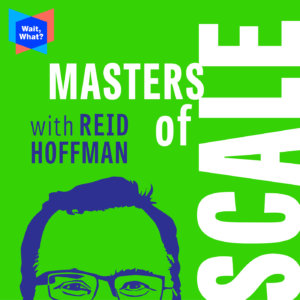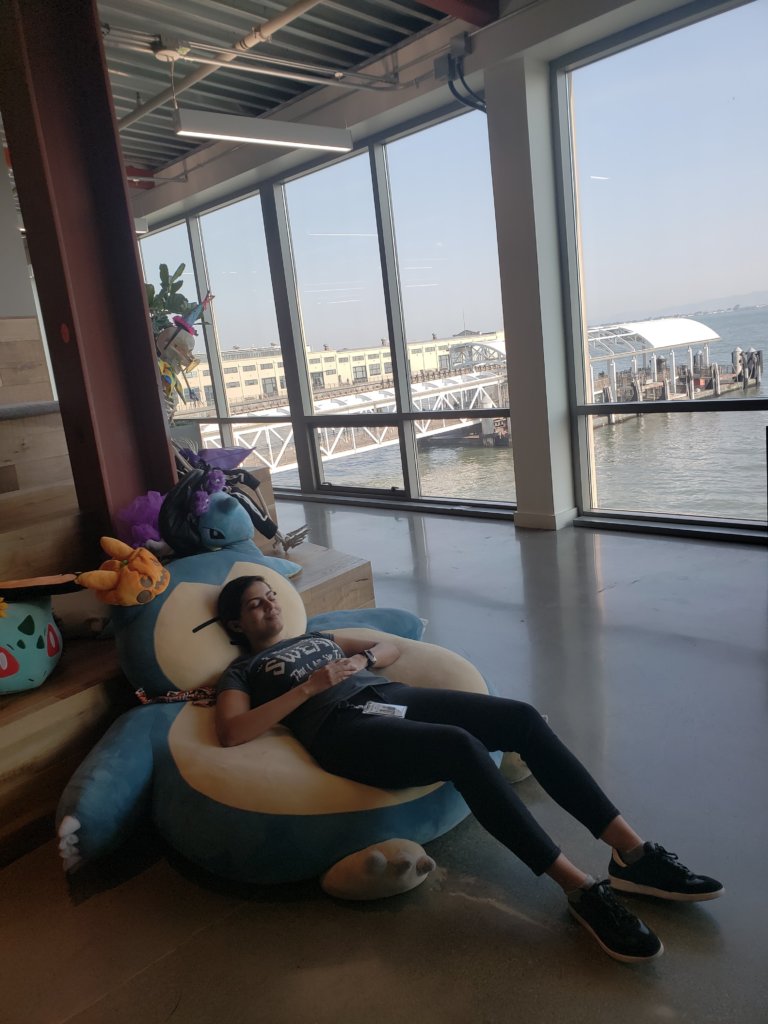
Role: Product Manager
Company: Niantic Inc
Background: Charu Jangid leads product for platform teams at Niantic Inc, the maker of augmented reality games Ingress, Pokemon Go, and Harry Potter: Wizards Unite. To date, people have walked over 23 billion kilometers with experiences built on Niantic’s Real World AR Platform. Prior to Niantic, Charu was a senior product manager at LinkedIn, where she led product for teams responsible for LinkedIn profiles and notifications. Before that, she was the product lead for Netsil, a microservices monitoring startup. An avid outdoor lover, she can be found hiking or cycling the Bay area’s many beautiful trails on weekends.
What do you do and what are you currently working on?
I work at Niantic Labs, which makes augmented reality games. We have three live games: Ingress, Harry Potter, and Pokémon Go.
Unlike traditional video or mobile games, our games require people to go outside to play them. When you open up the game, there’s a map of the world around you. The players in these games end up going out to these cultural locations and you’re experiencing gameplay situated around these specific spots.
I work on the platform behind the games. A lot of these games have similar characteristics — there’s a game board, camera-based augmented reality, and social experiences.
My team works on these social experiences specifically. I’ve been in the social tech space for a while, and the difference between Niantic and other social products is that focus on getting people to go outside and meet each other face-to-face. It’s not just conversing online. I think that’s what makes it special.
What’s particularly exciting to me is seeing the connections people make via these games, and the passion people have for them. I mean, people walked a billion kilometers just playing Pokémon Go. People find communities through this game. It’s even an avenue for making new friends.
What consumes the majority of your mental space during the day?
What’s awesome about the Niantic team is that everyone’s really passionate about the product. The engineers and designers (everyone, really) care deeply about the product and the experience. Everyone plays it themselves, so everyone’s very invested in making it better. That part has been amazing for me.
I do feel that what I’m doing a lot of the time is making sure that nothing is done in isolation. Our products require support from the game team. I work on the platform that powers the game, meaning that I have to work with our game teams to make sure they understand our product stack, our requirements, and any additional needs we didn’t anticipate. We also work with legal and operations.
Also, we’re actively encouraging people to go outside and meet up, so that comes up with privacy and legal concerns as well. We want to create a very safe and fun product experience. On a day-to-day basis, all these different interests have to be met. There are many different stakeholders, and I’m trying to make sure there’s alignment.
How do you do actual work?
The first meeting of my day is usually standup, so I try not to schedule any meetings before then. That gives me some time in the morning to go through everything that is most important to me. My main productivity hack is to make sure I’m focused on the most important thing every day, every week. At the beginning of the week, I write something like, “If I could accomplish only one thing this week, what would be the most helpful for the team?”
I do that every day. It’s not about finding time to make everything fit, because then I’m always endlessly chasing the end of the wheel. It’s more about identifying the to-do with the highest value for the team and the product. Everything else is secondary in terms of prioritization.
What do you do to brainstorm?
Outside of work, I actually love to be completely disconnected and be in the outdoors. That’s done through backpacking and super-long bicycle rides. It’s really important for me to take some time every week to not be connected to technology. It’s the opposite of what I do every day, but that’s what helps ground me.
At work, the most helpful activity is a cross-functional brainstorm. When brainstorms are full of the same type of people, whether it’s all engineers or managers, we definitely have a bias to how we view the world. For a brainstorm to be effective, it needs to include a spectrum of ideas. I structure meetings by starting with an activity called “fuzzy,” where everybody just talks about feelings. They can share what feelings they want to inspire when building this product, or the feelings that users should have when they use this product.
Some people struggle to talk about their own feelings, so it’s easier to share them through stories. We often hear powerful feedback from players who write to us about having anxiety that prevented them from going outside. This game helped them get out of the house and do things like socialize or even lose weight. These stories are important to share during brainstorms so we understand what kind of feelings we’re inspiring with our product.
When it comes to communication, what works for you? What doesn’t?
I think it really changes based on who you are communicating with. There’s team communication, should be very transparent. There’s also stakeholder communication. My team is a Platform team, and it’s really important to me that the game teams know what’s important in our roadmap and what we’re working on. I try to ensure that we work closely together and communicate with our partners. There’s also top-down, hierarchical communication when working with leadership and making sure we’re aligned with company resources.
For the team, I like using Slack and making transparent groups. I like regular in-person team meetings via daily standup or weekly team meetings. We have partner teams who really need to know what we’re doing. We’re not successful unless we make them successful. These meetings are not as frequent as they are with my own team — more on the order of every week. In addition, we send out monthly platform team updates to the entire company to help people stay up to date.
What is the most gratifying part of being a product manager? What’s the least gratifying part?
The most gratifying part of being a product manager is seeing people actually use something you’ve built. That has always been the most motivating factor for me. If the things you create don’t see the light of day, it feels like you’ve never served your purpose at all.
The least gratifying part is that the PM role can often feel very generalist. It feels like you’re not an expert in anything, and you find yourself responding to all kinds of problems. You wear many different hats to get the product to where it needs to be. Right after graduation, a lot of my friends went into software engineering, whereas I went into product. With software engineering, they became experts in their domain. Sometimes I’d think, “What am I an expert in?” However, there are different ways to think about expertise for PMs. It’s not codified yet.
If you could work on any problem and develop a product for it, what would it be?
If I knew how to solve the most important problems, then I’d be working on them. It’s easy to lose sight of the problems and issues that actually matter to you and focus on the “new hot thing” instead. However, I’ve always tried to work at places I felt were staying true to something I was passionate about.
At Linkedin, I was passionate about career development, jobs, and so forth. With Niantic, it’s more about passion for going outside. Niantic products are for people to discover the joy of being outdoors. It might not be an organic idea to experience the outside, but they’ll still go outside because they want to play the game.
One big problem in San Francisco and the rest of the US is extreme income inequality. I’m interested in learning more about what we can do to bridge this gap.
What is your go-to jam if you need to concentrate on something?

Masters of Scale by Reid Hoffman
What’s your favorite product?
I’ve been super addicted to Strava. It’s a fitness app but it’s really more like a fitness social network. I started using Strava because I wanted to figure out what the best routes to cycle are in the Bay Area. It started off as a way for me to find more information but soon turned into a way to keep up with friends who are active.
I recently completed a ten-day backpacking trip and Strava lets you see other people who do the same route as you. I’ve been using it a lot recently, and I open it more than Instagram.



